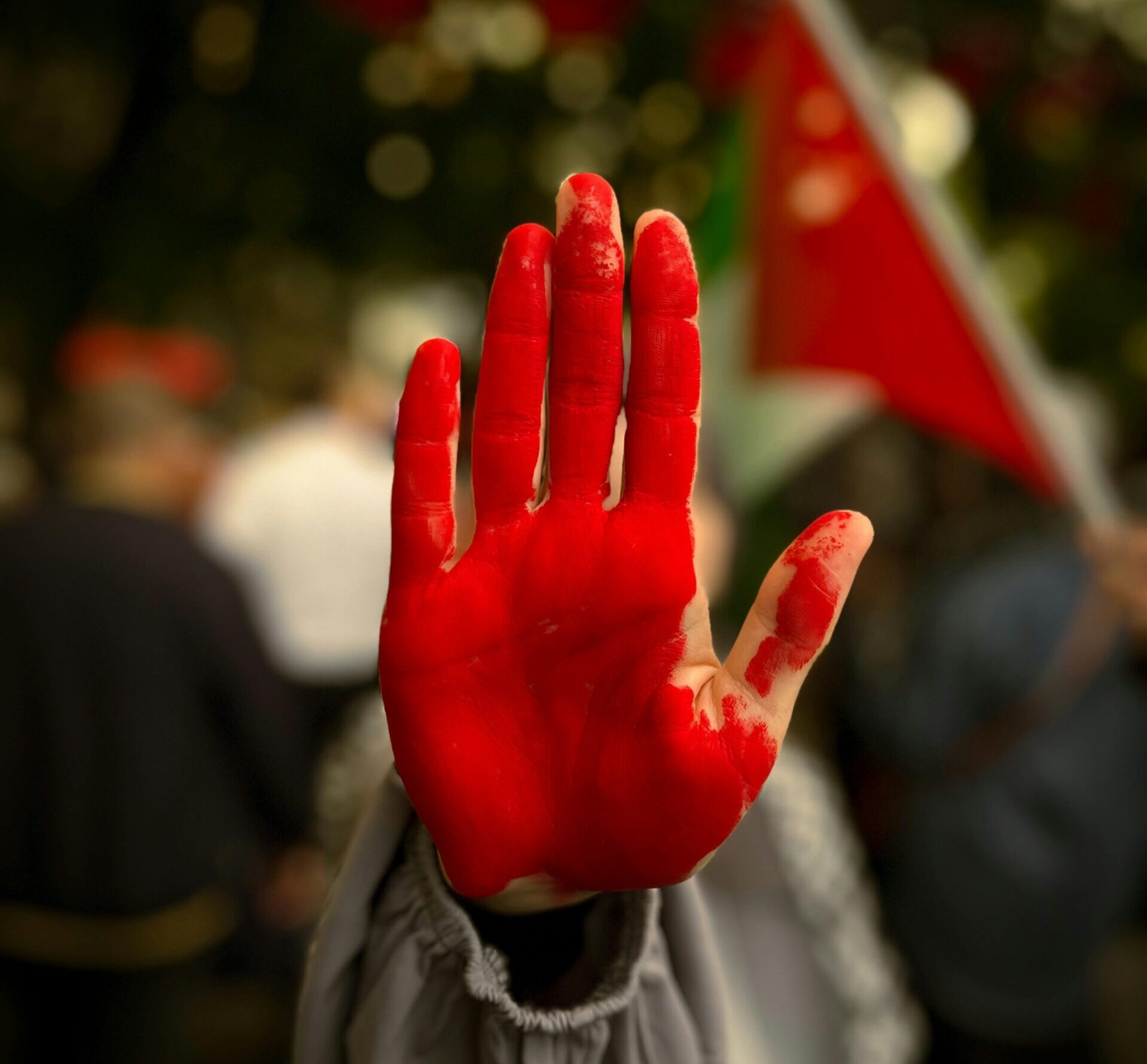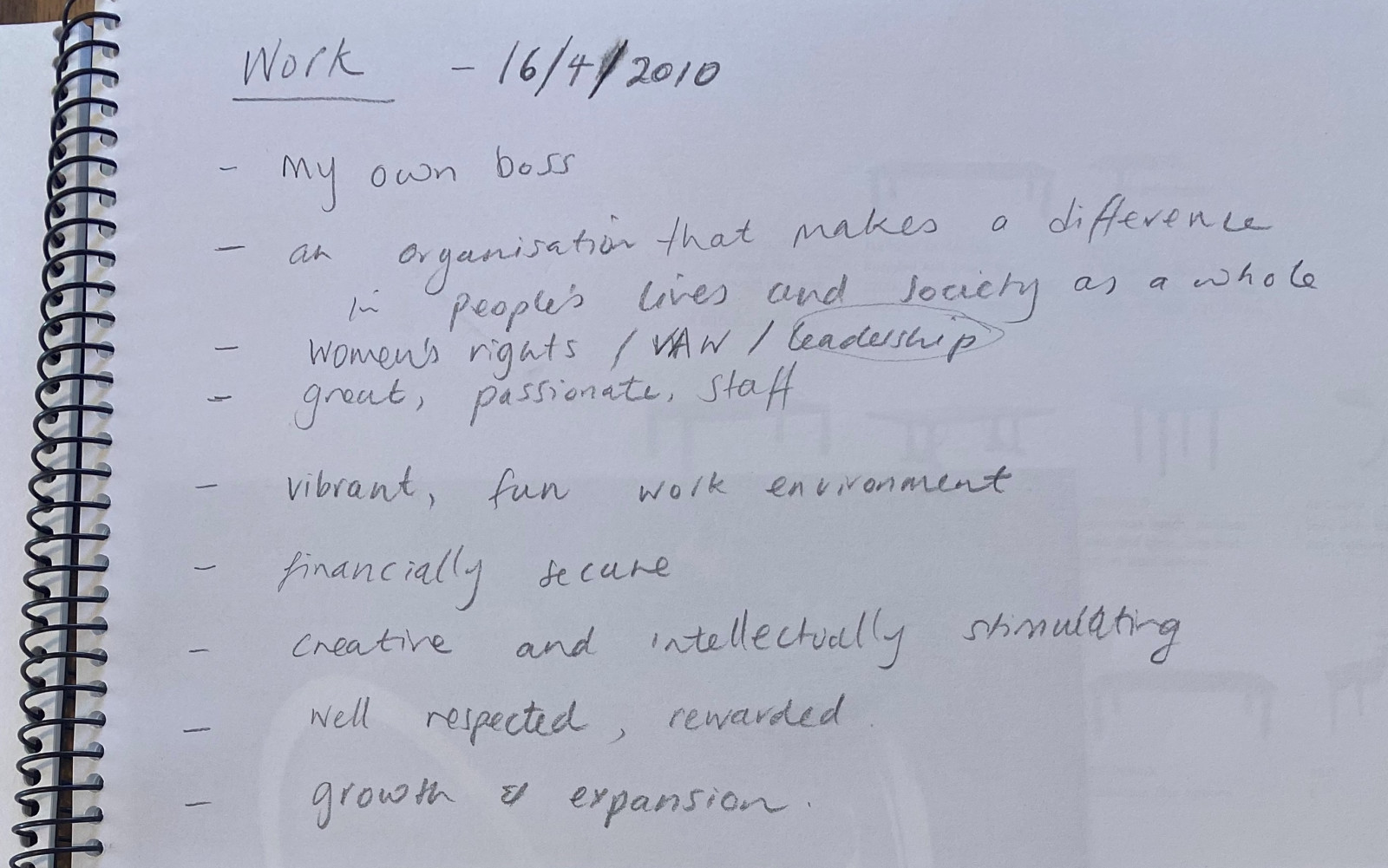'Art is Inherently Rebellious': A Conversation with Randa Abdel-Fattah


Ten years ago, Equality Institute started with one feminist on a bedroom floor in Naarm. Today, we’re a global organisation working with governments, grassroots leaders, and communities across the world to prevent violence against women and girls and advance gender equality.
It hasn’t always been easy — activism never is. But it’s been fierce, joyful, collaborative, and deeply human. From viral protest tees to national policy change, from grounding care retreats on Country to global coalitions shaping the future of prevention — this journey has been powered by countless feminists, partners, and communities who believe in building a more equal world.
So, on our 10th birthday, we’re looking back at 10 moments that shaped EQI — and that remind us what’s possible when we dare to imagine and act differently.
#10. The moment EQI was born
2015 | Naarm (Melbourne, Australia)
One feminist. One logo. One mission.
After burnout and leaving her international career, our Founder and Co-CEO, Dr Emma Fulu, returned to Australia with three young children and set up The Equality Institute from her mum’s house. She built the first website herself, planting the seed of what would become a global feminist agency.
Hello, world. We’d arrived — in trackpants, no less.
#9. Our first big research project
2016 | Timor-Leste
Partnering with The Asia Foundation, we conducted the Nabilan Health and Life Experiences Study — our first major international research project. By adapting global methodologies to the local context, we generated rigorous, reliable data on violence against women and children that still informs programs and advocacy today.
Feminist research. Local impact.
#8. When the t-shirt said it all
2017 | Global
We made a protest tee that spoke our minds: Pussies Against Trump. It went viral just in time for the Women’s March in Washington, which Emma attended. Because when rage, resistance, and a good typeface collide, magic happens.
Still iconic. Still relevant. Still pissed.
#7. We said “pregnant people.” The world lost it.
2017 | Social media, Global
We used inclusive language: “pregnant people.” Because not all people with uteruses are women.
Cue the trolls. Our post was picked up by Breitbart, Daily Mail, radio stations — even then-PM Scott Morrison weighed in.
We stood our ground. If inclusion is radical, call us radicals.
#6. Gender analysis into policymaking
2019 | Victoria, Australia
We partnered with PwC and the Victorian Government to co-design and pilot a Gender Impact Assessment (GIA) framework — embedding intersectional gender analysis into policymaking.
Hundreds of public servants across departments, councils, and universities were trained. We helped shape the Gender Equality Act 2020 and co-designed the official GIA Toolkit, institutionalising feminist analysis across the Victorian public sector.
Feminist frameworks. Systemic change.
#5. A global exchange, just before the world shut down
2020 | Peru + Colombia to Naarm
We hosted 10 government and civil society leaders from Peru and Colombia for a learning exchange on national, whole-of-government prevention strategies. Sharing tools, ideas, and evidence, we later supported Peru’s first-ever National Strategy to Prevent Gendered Violence.
Just before COVID grounded us, we helped make global feminist knowledge-sharing happen.
#4. Care is resistance
2021 | Dili (Timor-Leste) & Mparntwe (Alice Springs)
The future of feminist movements depends on the wellbeing of grassroots leaders.
We piloted Bin-Alin Hakbi’it Malu (BAHM), a feminist leadership incubator rooted in collective care, co-learning, and decolonial practice. It supported women and gender-diverse activists to reconnect to self, culture, community, and one another.
In Mparntwe, we partnered with the Tangentyere Women’s Family Safety Group to facilitate collective care retreats on Country. Participants rested, healed, connected to culture, and strengthened their collective resilience.
Care as activism. Resistance through connection.
#3. Gender equality goes digital
2022 | Naarm, then Global
In response to the pandemic, we launched Gender Equality Foundations, a human-centred, design-led online course supporting learners to understand gender inequality and how to take action. Featuring insights from leaders like Rosie Batty AO, Carly Findlay OAM, and Tasneem Chopra OAM, the course helped individuals and organisations understand their role in advancing equality.
Partnering with MECCA, we rolled it out across their workforce — from head office to stores to distribution centres. The impact?
As one participant said:
“This course was incredible — I genuinely learned more than in my actual university course. 11/10 would recommend.”
And yes, it’s now available to everyone. Head over to our courses to check it out.
#2. What Works 2 — researching prevention at scale
2023 | Global
We joined a consortium with Global Women’s Institute, John Hopkins University, University of Cape Town, Kenyatta University, and Aga Khan University to lead research & evaluation for What Works 2. Funded by FCDO UK, this £67.5M initiative spans seven years and 58 studies across Africa, Asia, and MENA.
We’re not just asking what works to prevent violence against women and girls. We’re helping prove it — at scale.
#1. Shifting the focus: who uses violence and why?
2024 | Australia
For the first time in Australia, a study is exploring the prevalence of domestic, family, and sexual violence perpetration — who uses violence, why, when, how, and where.
In partnership with QUT, Good Shepherd, and UNSW, and funded by ANROWS, this research will:
Years of advocacy made this possible. This work will shape the next generation of prevention.
Ten years down. A lifetime to go.
Every moment here was made possible by the communities, individuals and organisations we’ve been privileged to work alongside. Thank you for supporting us, for learning with us, showing us how to do this work better and for your consistent belief that a world of gender justice is possible. People who shared their stories, grassroots leaders who showed us what care looks like, governments willing to do things differently, and communities who demand more.
The next decade won’t be simple. But it will be bold, collective, and full of feminist imagination.
Here’s to the next 10 years of resistance, care, and joy.
The land we live and work on always was, and always will be, Aboriginal land. We pay our respects to the Traditional Custodians of Country throughout Australia and acknowledge the ongoing leadership role of Aboriginal & Torres Strait Islander communities in preventing violence against women. We also acknowledge Traditional Custodians of the lands where EQI works around the world.
Read MoreYou have been logged out.
"*" indicates required fields